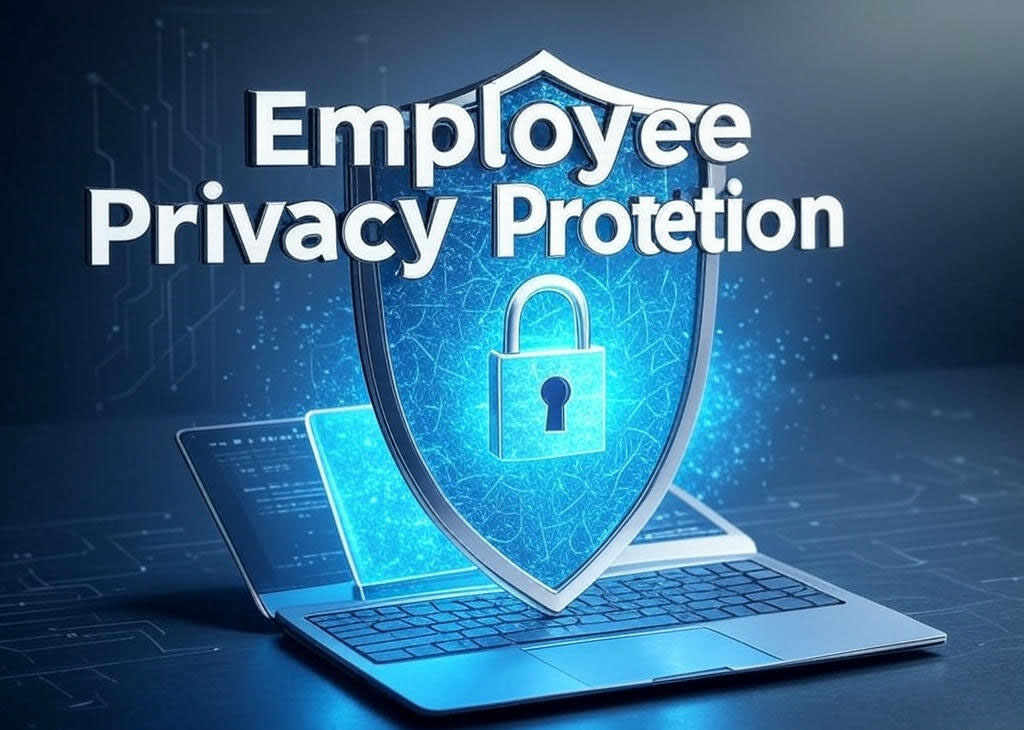In an era where cyber threats loom larger than ever, safeguarding employee personal information is a top priority for organizations. Employee data, such as names, addresses, and Social Security numbers, is a prime target for cybercriminals. They often use phishing, identity theft, and social engineering to exploit vulnerabilities. A single breach can lead to financial loss, identity theft, and reputational damage for both employees and the organization. To mitigate these risks, businesses must implement proactive privacy protection programs. These programs ensure compliance with regulations and foster a culture of trust and security. This blog explores the need for such programs, actionable strategies for implementation, and how services like DeleteMe and Eagle Point Technology Solutions can help organizations stay ahead of cyber threats.
The Escalating Threat Landscape for Employee Data
The Impact of Digital Transformation
The digital transformation of workplaces has increased the volume of employee data stored online. Remote work, cloud computing, and collaboration tools enhance efficiency. However, they also widen the attack surface for cybercriminals. The Identity Theft Resource Center’s (ITRC) 2024 Annual Data Breach Report highlights the issue. It notes that U.S. data compromises in 2024 (3,158) decreased by 1% from 2023 (3,202). Yet, victim notices surged by 312%, reaching over 1.7 billion. Six mega-breaches, each affecting over 100 million individuals, drove this increase.
Vulnerabilities and Consequences
Employees are often the first point of vulnerability in cybersecurity defenses. Cybercriminals exploit employee personally identifiable information (PII) to launch targeted attacks. Spear-phishing campaigns, for example, trick employees into revealing sensitive credentials. These attacks can escalate into broader network breaches. Organizations also face legal and financial repercussions for failing to protect data. Regulations like GDPR and CCPA impose strict requirements on handling employee information. GDPR violations can lead to fines of up to 4% of annual global revenue. A data breach can erode employee trust, decrease morale, and increase turnover. It can also cause reputational damage that takes years to repair.
Reducing Exposure with DeleteMe’s PII Removal Service
One effective way to protect employees is by minimizing their PII online. Data brokers and people-search websites often collect and distribute employee information without consent. This makes it accessible to malicious actors. DeleteMe offers a powerful solution here. DeleteMe removes employee PII from the internet. This provides a proactive shield against cyber risks.
DeleteMe focuses on continuous monitoring and removal of employee data from online platforms. Trusted by 20% of Fortune 500 companies, it reduces risks like phishing and identity theft. It ensures sensitive information, such as home addresses and phone numbers, isn’t publicly available. The service operates on a subscription model for ongoing protection. For example, a cybercriminal might use an employee’s PII to craft a targeted phishing email. By removing this information, DeleteMe lowers the chances of such attacks succeeding. It also provides detailed reports on where data was found and removed. This gives businesses transparency and confidence in their privacy efforts.
Strengthening Internal Defenses with Eagle Point Technology Solutions
Removing PII from the internet is just one step. Robust internal security measures are also essential to prevent unauthorized access to employee data. Eagle Point Technology Solutions offers a comprehensive approach to cybersecurity. These include risk assessments, access control implementation, and incident response planning.
Eagle Point conducts thorough risk assessments to identify vulnerabilities in systems. Many companies store employee PII in unencrypted formats, making it an easy target. Eagle Point maps out where employee data resides and who has access to it. They help address gaps before hackers can exploit them. They also implement access controls based on the principle of least privilege. For example, an HR manager might need employee records, but a marketing team member does not. Eagle Point sets up multi-factor authentication (MFA) and encryption protocols. The ITRC report notes that MFA could have prevented four of the six largest 2024 breaches. Finally, Eagle Point helps develop and test incident response plans. This ensures businesses can quickly contain breaches and comply with legal requirements.
Actionable Strategies for a Proactive Privacy Program
Educate and Minimize Data
Building a proactive privacy protection program requires a multi-faceted approach. First, educate employees on cybersecurity best practices. They are often the weakest link in security. Train them to recognize phishing emails and use strong passwords. Include real-world simulations, like mock phishing emails, to keep them vigilant. Next, minimize data collection and retention. Collect only the PII that is necessary. Establish clear policies to delete data when it’s no longer needed. For example, don’t retain an employee’s details years after they leave.
Encrypt and Vet Vendors
Another key strategy is to encrypt sensitive data. Encryption ensures that unauthorized parties cannot read the data without a decryption key. Use industry-standard protocols like AES-256 for all employee PII. Also, vet third-party vendors thoroughly. When working with payroll processors or HR software providers, ensure they have strong privacy practices. Include contract clauses that hold vendors accountable for data protection. Require them to notify you of any breaches. Regular audits of vendor security practices can further reduce risks.
Monitor and Foster a Privacy Culture
Implement continuous monitoring and auditing of systems. This can detect suspicious activity early, like unusual login attempts. Regular audits of access logs and security policies ensure the program remains effective. Automated tools can flag anomalies for investigation. Finally, foster a privacy-first culture. Leadership must champion privacy as a core value. Communicate the importance of protecting employee data. Provide resources for privacy initiatives. Reward employees who follow best practices. A privacy-first culture encourages accountability at all levels.
The Long-Term Benefits of Proactive Privacy Protection
Investing in a proactive privacy program offers many benefits. It reduces the risk of data breaches, protecting employees from identity theft and financial loss. For the organization, this lowers legal and financial risks. IBM’s 2024 Cost of a Data Breach Report states the average cost was $4.88 million, up 10% from 2023. Preventing breaches helps avoid these costs and regulatory fines.
A strong privacy program also boosts employee trust and morale. Employees feel valued when their information is safeguarded. This leads to higher engagement, productivity, and retention. From a competitive standpoint, prioritizing privacy attracts top talent and customers who value data security. Compliance with regulations like GDPR and CCPA becomes seamless. This helps avoid penalties and reputational damage.
Conclusion: Prioritizing Employee Privacy in a Digital World
Protecting employee privacy is a critical responsibility in today’s threat landscape. Use external solutions like DeleteMe’s PII removal service. Pair them with internal measures from providers like Eagle Point Technology Solutions. This creates a comprehensive privacy protection program. Follow strategies like training, encryption, and monitoring. As cyber risks evolve, stay proactive. Invest in the tools, processes, and culture needed to safeguard your people.




